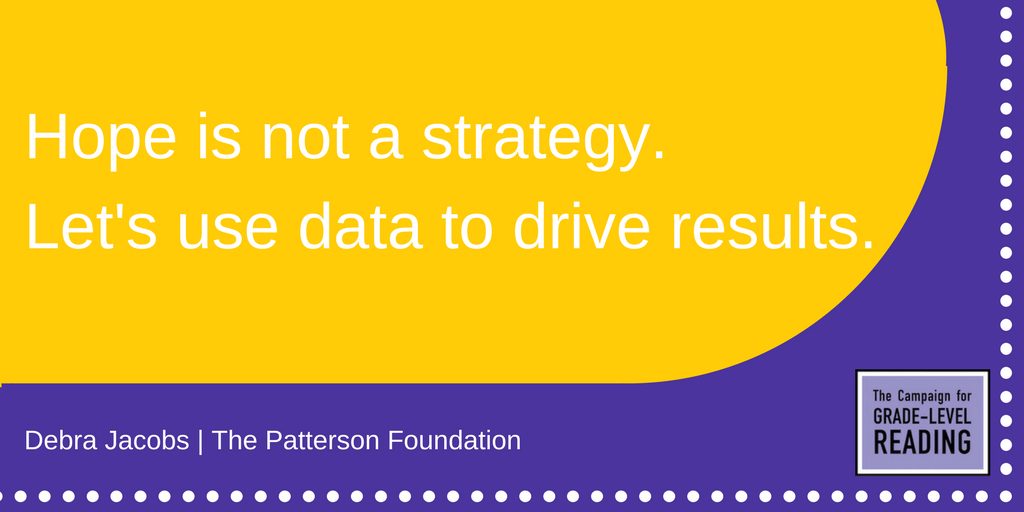Every year, local, state and national funders that support the Campaign for Grade-Level Reading’s work in early literacy, gather for the Funder Huddle. Attendees have the opportunity to meet other philanthropic funders in the grade-level reading community, share challenges and successes, and collectively drive toward bigger, stronger and better results. This week, we attended the 2017 Funder Huddle in Denver.
Here are some of our key takeaways:
Take an entrepreneurial approach to philanthropic work. Entrepreneurs are bold. They are risk takers and innovators. In his opening address at the Funder Huddle, Ralph Smith, managing director of the Campaign for Grade-Level Reading, pointed out that to close the achievement gap we need to take an entrepreneurial approach to philanthropic work. What does that mean? It means having a vision of possibilities, the audacity to be bold and explore new opportunities, and the agility to actively evaluate your work and course correct when necessary. Entrepreneurs lead with their aspirations, they focus on results and then figure out the process to make it happen.
Collaboration is key. Yes, everyone, everywhere talks about collaboration. But with good reason. Collaboration really is key. Whether it’s to close the reading proficiency gap or to achieve world peace, no one person, program, sector or country can do it alone. As Ralph Smith explained, there is no single program that will be powerful enough to close the reading proficiency gap. We need each other. We need to come together, share results and best practices, and aggregate efforts to tackle problems and reach our goals.
Data makes the story true. Ah, data. It seems people have a love/hate relationship with this word. We understand, we’re communications people, not numbers people. However, we greatly value data and understand it’s importance in building movements. Movements need passion and data to drive action and results. Passion and hope can do a lot, but as Debra Jacobs, president and CEO of The Patterson Foundation, pointed out: hope is not a strategy. Use passion to fuel your work and data to drive your efforts. Oh, and that data you have? Make sure that you share it whenever you can, with whoever you can. Data can’t be siloed. In the case of the Campaign for Grade-Level Reading, how can we know what’s working for children when we have multiple data systems that don’t talk to each other? We can’t. That’s where collaboration and learning and sharing come in.
Stories make the data real. How many times have we have talked about the importance storytelling in philanthropy? We even have an eBook about it. We firmly believe that using storytelling to drive engagement is one of the most effective ways to grow and attract support for your cause. For powerful, effective storytelling, you must strike a balance between data and emotional appeal. This quote from the Funder Huddle sums it up perfectly: data makes the story true, and stories make the data real. When you use data in storytelling, use it well. Share a data point and frame it in a way so it makes sense and enhances your story instead of drawing attention away from the emotional connection. For more tips on storytelling, click here.
What were your key takeaways from the Funder Huddle and, if you’re sticking around for the All-America City Awards, what are you most excited about?
As a social sector communications agency, MagnifyGood specializes in elevating the marketing, PR, branding, advertising, and social media of nonprofits, foundations, and other mission-driven organizations. Looking to enhance your donor engagement, create compelling impact stories, establish a brand that aligns with your mission, or explore innovative strategies to connect with your community? Contact us here. Let’s magnify good together.



